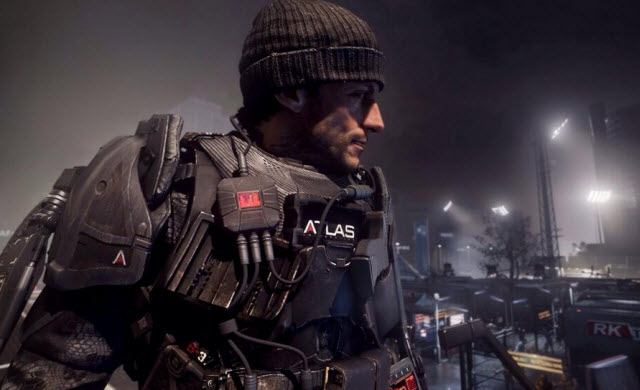
It’s just not accurate to say Call of Duty is in trouble. A series that sells almost 20 million copies in its last run is certainly not “in trouble.”
And yet, the winds do seem to be changing. In the wake of this new console generation, a fresh focus is being put on new IPs, specifically in the shooter genre. There’s Titanfall, Destiny and all the while, no matter if Call of Duty still sells well, it’s not quite the miracle worker it used to be.
The series has been in relative decline since the release of Call of Duty: Modern Warfare 3. Despite less than phenomenal reviews, that game broke every record that came before it with $500M in day one says, and nearly 30 million copies sold to date.
After that? Black Ops 2 was the beginning of the decline, as it was the yearly COD title in a long while that failed to top its predecessor. And then, Ghosts came along and the series dipped further.
Now, Activision has announced a new tent pole of the series, Call of Duty: Advanced Warfare. They’re now splitting game making duties between three in-house developers, not just two. Previously, it was Infinity Ward and Treyarch trading between the parallel paths of the series, Modern Warfare and Black Ops. Now it’s Infinity Ward, moved on to Ghosts without its original creators, now working on Titanfall, Treyarch, who may do a Black Ops 3, or might move on entirely, and now newcomer Sledgehammer, tasked with Advanced Warfare, and entirely new branch of the series.
The effort to turn Call of Duty into a yearly money-printing machine like Madden has worked out well for Activision so far, but the market is starting to turn. Fans started to feel like they were being taken advantage of, that yearly releases didn’t require much work at all, and that payment was simply expected for the new game, not earned.
This is why Activision switching to a three-year development cycle is the smart play. This way, they have far more time to devote to each new game in the series, rather than simply reskinning the old games with new maps and weapons.
But will it be enough? The concept of the “modern shooter” has sort of been done to death at this point, mostly by Call of Duty, but also its rivals like EA’s Battlefield. It’s why in recent times there has been a shift to “near-future” warfare. This was notably the case in Black Ops 2, and once again, we’re seeing it taken to the next level with Advanced Warfare.
No, the series hasn’t quite evolved into Halo or Titanfall or Destiny themselves, but it seems poised to leave “present day” behind for the most part. If I had to guess, Treyarch’s next game may go all the way back to the series’ origins in World War II, while Infinity Ward’s Ghosts might leap further into the future.
It can’t just be setting that changes however. It’s the gameplay that tends to grow stale after six or seven or ten years of relatively the same thing. Call of Duty does the mechanics of shooting probably better than anyone, but over time, there needs to be more than that. For all its faults, Battlefield was unique because of its emphasis on vehicular combat, something Call of Duty rarely touches on (not counting killstreak rewards). Titanfall may not be a sales monster yet, but using both freerunning parkour and heavy-footed Titans added a lot of diversity to gameplay. It felt much fresher than Call of Duty has in years.
Perhaps Advanced Warfare is planning something like this. In trailers for the game, soldiers are shown wearing exosuits that give them greater strength and speed and vertical leap. If combat evolves (no Halo pun intended), that could inject fresh life into the game.
Conversely, it could alienate longtime fans who are the ones still shelling out for the game every year. Activision always has to walk a fine line between inserting changes to keep things fresh, and keeping most things the same as not to lose their large base. Even if Ghosts was a “disappointment,” it’s still miles ahead of any other game on the market in terms of sales. It’s like American Idol seeing falling ratings, but it’s still one of the biggest shows on TV because of endless populist appeal.
The Call of Duty juggernaut may never fully stop, but it will likely continue to slow down unless the series undergoes some major revamps. Maybe Advanced Warfare will spark that kind of change, or perhaps Treyarch or Infinity Ward’s next Xbox One or PS4 title will instead. But few series have seen a longer, more profitable life, and Activision should be grateful for the golden years they’ve had to date.
[Photo via Activision]
